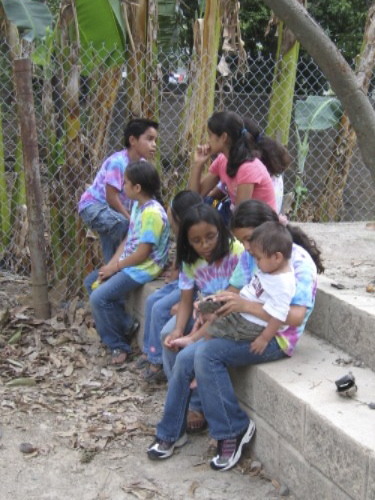Recently, a child in my practice has become a minecraft afficianado. This child is very smart but has processing problems and struggles in school. He is adept at the game, which wins him admiration from his siblings and peers, with whom he plays the game both at home and in free periods at school. When he brought the game in to show me, on his mother’s iphone, I was impressed by his proficiency and also noted the fact that he talked to me more – about the game – and in a more coherent fashion, than I can remember his having done before. I was pleased. However, I was also suspicious, because I have had a rather negative view of videogames and their effect on my child patients for quite a while. Was this game going to change my mind?
I had always thought that videogames were attractive to children with regulatory problems – for example, kids with learning disabilities, processing problems, or tricky moods – because in playing the game the child experiences strong affect and intense physiological arousal that is highly pleasurable and that is otherwise unavailable to the child without the negative consequence of his falling apart. That is because the game is doing the regulating for him and the child is the passive recipient of the structure and rhythm provided from outside.
The problem with this is twofold. First, the child needs all the practice in self-regulation he can get, and he isn’t getting any playing the game. Second, it is very unpleasant to discontinue this experience – a real downer, and that leads to a set of other problems. Children with regulatory problems often have particularly difficult times with transitions, and a parent’s demand that the child leave such an attractive activity can often generate a struggle or provoke a fight. In addition, parents of these children typically have a hard time setting limits on their children’s behavior due in large part to the child’s neuro-cognitive challenges, and old struggle patterns can be triggered by these demands for compliance, in effect “practicing” these problem patterns and making them worse.
Then by coincidence, a colleague, Dr. Tim Davis, brought up the game of minecraft in a clinical discussion we were having about another child. Tim supported my original opinion of the game. Tim said that the game presents the player with small tasks and an immediate reward, in that way offering gratification to the player who has organizational or processing problems. This may contribute to a tendency for children to prefer this game and avoid more difficult but more growth enhancing activities, or for these reasons may even lead to an addictive behavior. Yet, Tim and I are of the same opinion about setting limits on videogames like this. We both think that it is better not to prohibit the game completely, especially since the game is often popular with the child’s peer group, and these children often need all the support they can get “fitting in”. However, this puts a large strain on parents, because it means that you are setting limits all the time on a child who responds poorly to limit setting. On the other hand, it gives parents and children the chance to practice very challenging negotiations so that they can build their competencies. Each family has to set their own rules, but generally I recommend that children not play videogames until their homework is done and done well (not dashed through to get to the game). On weekends, parents may also wish to insist on another kind of play with peers or physical exercise before the videogames. The time children are allowed to play videogames – or the time allowed for any “screen time” varies from family to family.
Later, I contacted another colleague who knows a lot about videogames, Dr. Peter Chubinsky. He wrote me back, “After a break from serious gamers in my practice, I find myself doing psychotherapy with some older adolescents with great passion and skills for these video games. They now realize as their parents had years before that being the greatest wizard on a 200,000 person server, or having the most kills and earning the respect of soldiers playing online with you are not the best answer to the question on their college application, ‘What accomplishment in high school are you most proud of?’ Even more compelling to my patients and the motivation to modify their gaming is realizing how poorly the games have prepared them for finding a girlfriend!”

